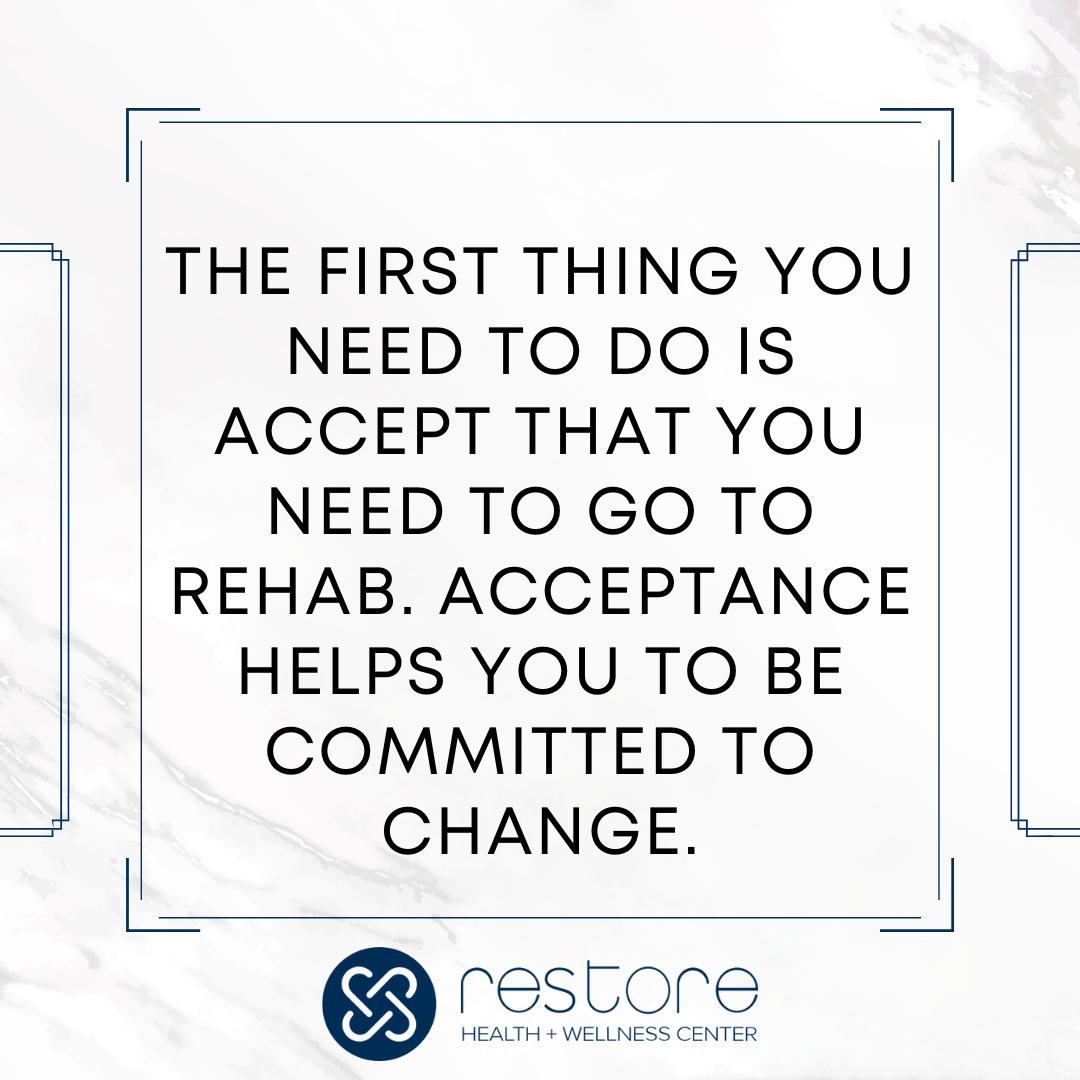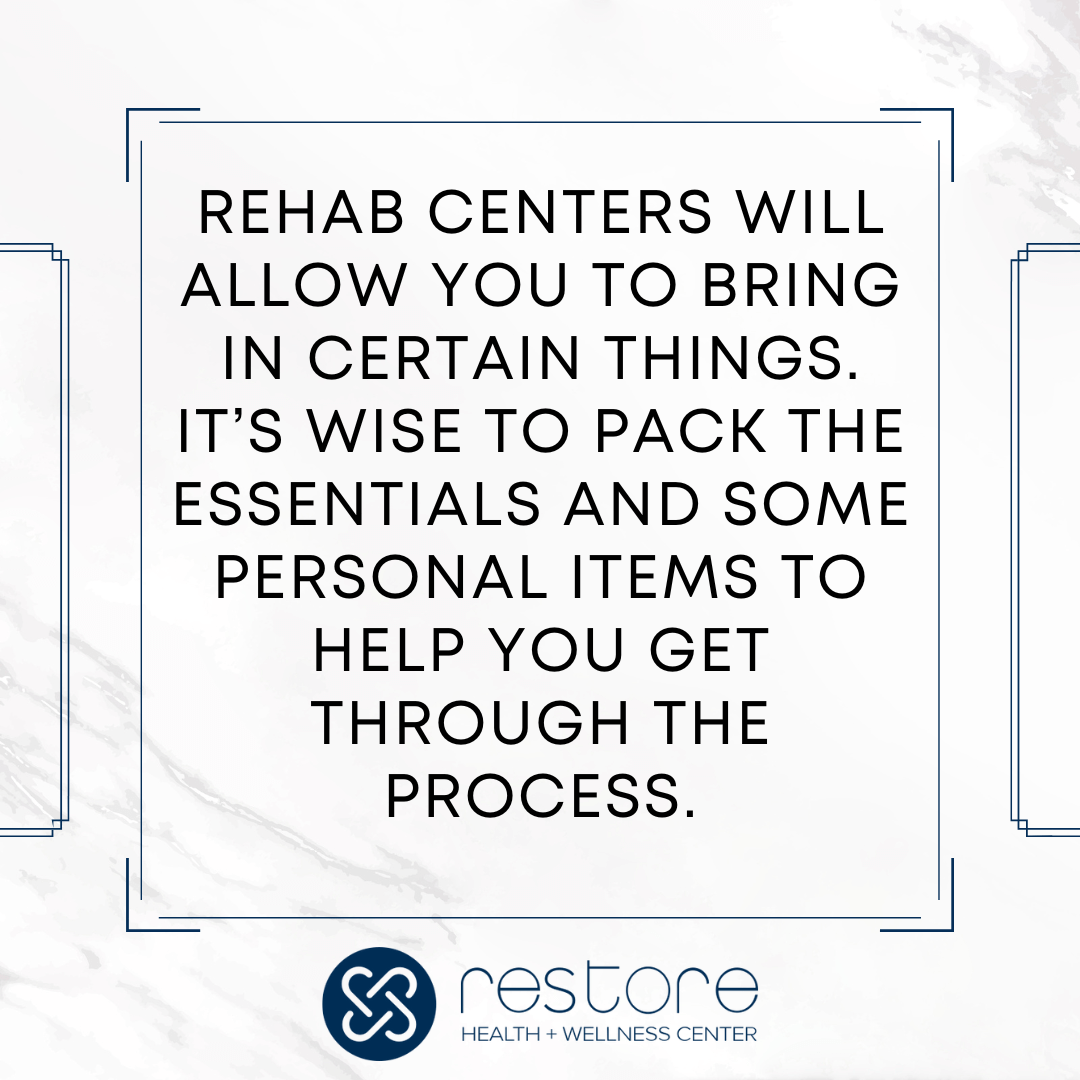
Embarking on a journey toward recovery and healing is both brave and necessary, but it can also be laden with uncertainty and fear. The decision to enter drug rehab is a monumental step, allowing you to reclaim control of your life.
As you prepare to take this transformative leap, it’s crucial to arm yourself with knowledge and strategies to ensure you are as ready as possible for the challenges and triumphs that lie ahead.
Here are some things you need to get started.

Acceptance and Commitment
The first thing you need to do is accept that you need to go to rehab. Acceptance helps you to be committed to change.
How do you know when it’s time to go to rehab? You may experience these:
- You constantly crave drugs
- You lack control over your drug use
- Drug abuse interferes your relationships
- You are feeling the negative effects of drugs on your physical and mental health
- Withdrawal symptoms keep you from remaining sober
However, you may still find it difficult to get rehabilitated, mainly because of the following:
- Financial difficulties
- Geographic limitations
- Stigma
If financial difficulties are a concern, numerous programs exist to support you, along with a wealth of remote job opportunities awaiting your return. Additionally, telehealth networks offer a solution to geographical constraints, providing remote therapy sessions.
This approach not only addresses logistical challenges but also helps in reducing the stigma associated with seeking treatment, as you can receive help discreetly from the comfort of your home.

Educating Yourself About the Rehab Process
You’ll also need to know what exactly goes on during rehabilitation to better prepare yourself. If you’re in a residential program, your typical day will look like this:
- Wake up at a set time every morning
- Nurses give out medication to anyone who’s prescribed them for specific reasons, including for managing withdrawal symptoms
- Eat breakfast
- Attend the first therapy session for the day, a group therapy session for example
- Possible break to apply what was learned during the session
- Eat lunch
- Attend another therapy session
- Free time to choose an activity (attend a fitness session, educational course, karaoke, arts, movies, etc.)
- Dinner
- Possible final group therapy session
- Get ready to sleep
- Sleep
Some rehabilitation centers might have other programs in place to help with the therapy. The goals of each activity are to help you conquer addiction and withdrawal symptoms. More personalized programs are set in place for certain individuals, depending on their needs.
Planning Logistics
In some cases, you can get same-day rehab but this doesn’t mean that you should immediately go to rehab without planning. You need to tie up loose ends with employers and inform family members about your situation. They should know about this so they can prepare for when you return.
Make sure you have the necessary funds to get treated and see if you’re covered by an insurance plan. If you aren’t insured, look for options to fund your drug rehab. Under the ACA, insurance applicants are no longer penalized when getting insured while already having a pre-existing condition so this is a viable option to help pay for your bills.
Packing Essentials
When possible, make sure to remember to bring some essentials. Rehab centers will typically allow you to bring in certain things. It’s wise to pack the essentials and some personal items to help you get through the process.
- Clothes
- Shoes
- Books (recovery-related)
- Stationery or a journal
- Stamps and envelopes to keep in touch with loved ones
- Personal hygiene items
- Alarm clock
- Insurance information
- Cash or cards
- Pictures of loved ones
Some cash is good so you can have some spending money for quick store runs. Journals will help you document the progress of your treatment and even give you an avenue to reflect.
And don’t forget to bring pictures of your loved ones with you for motivational support.
Mentally and Emotionally Preparing
Make it a point to remember that therapy can take time while preparing for rehab admission. Stop rushing and start trusting the process and be patient. Don’t beat yourself up if you aren’t seeing results immediately.
Remember the pictures of your loved ones we told you to bring? Keep them in mind and use them as motivation to get through rehab. Visualize yourself getting through this and keep on fighting.
If you’re suffering from drug withdrawal symptoms, there should already be specialized programs set for you if you were truthful during your application. And pick a good activity to keep your mind off drugs for your free time activity. You can also check our alcohol withdrawal tips if you’re suffering from them too.
Addressing Concerns and Ambivalence
If you’re still uncertain about going to drug rehab because you’re afraid of withdrawals and stigma, keep in mind that your rehabilitation program will be made with these in mind. Stigma shouldn’t be much of a concern today as more and more celebrities are advocating for mental health awareness.
Many people who are diagnosed with mental health issues and addiction are seeking treatment. If you’re still concerned about stigma, start off your drug rehab preparation by building a good support network.
Building a Support Network
Be open with your family and friends. If you’re planning to get rehabilitated, open up to them. Unless, of course, if they’re toxic and are some of the causes of you getting addicted in the first place. Still, look for trustworthy people, so they can support you from start to finish.
There should also be physical and online support groups of like-minded people who can share their stories to motivate other members. You may be able to find support here in case it’s too difficult looking for one from your friends and family.
Once you’re in rehab, participate more in group therapy sessions and treat the other participants as peers. Support one another as much as you can and you may be able to help each other out after rehab.

Setting Intentions and Goals
Still, the best driving force to push you to go to rehab is your ultimate goal for getting rehabilitated. Why do you want to get treated? In addition to your ultimate goal, set up step-by-step goals that you can achieve in realistic periods of time.
Setting up goals can keep you motivated as they help you build confidence, boost self-esteem, and encourage healthy living. This is especially the case when your goals are set up to further motivate you once they’re achieved.
When setting up goals, keep in mind that they must be the following:
- Specific
- Measurable
- Achievable
- Relevant
- Time-Bound
Don’t be vague with your goals and start from smaller goals to help yourself achieve bigger goals after a period of time. Smaller goals are excellent for when you’re just starting rehab. Starting off with a big goal will only burden you, especially when you’re still having a hard time with your recovery.

Conclusion
Doing these things should help you begin your journey to rehab. If you feel like giving up, give yourself more reasons not to and trust the process.
Are you looking for residential addiction treatment in Los Angeles? We can help you take the first steps toward life-long recovery. Contact us today to get started.




